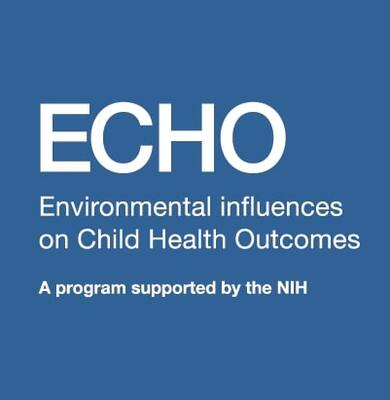A new National Institutes of Health -funded study found that pregnant women had been exposed to rising levels of certain chemicals, especially replacement chemicals: chemicals meant to replace other chemicals that have been banned or phased out.
DURHAM, N.C., May 11, 2022 /PRNewswire/ -- A new National Institutes of Health (NIH)-funded study found that pregnant women had been exposed to rising levels of certain chemicals, especially replacement chemicals: chemicals meant to replace other chemicals that have been banned or phased out. Many of the women had been exposed to neonicotinoids, a widely used type of pesticide.
The researchers used a new method for measuring multiple chemicals in a small amount of urine. More than 80% of chemicals examined were present in at least one of the women in the study, and about a third were found in a majority of the participants.
The study included 171 pregnant women enrolled in the NIH Environmental influences on Child Health Outcomes (ECHO) Program. This is the largest exposure study to measure more than 100 chemicals simultaneously in a diverse population of pregnant women in the U.S.
"This study highlights the importance of including pregnant women in biomonitoring studies and informing policies and practices to decrease harmful chemical exposure," said Jessie P. Buckley, PhD, of Johns Hopkins Bloomberg School of Public Health.
Dr. Buckley and Tracey J. Woodruff, PhD, of the University of California San Francisco led the research team whose findings are now published in Environment Science & Technology.
The team determined detection frequencies and concentrations for each chemical, and assessed how demographic characteristics and the year of sample collection related to levels of the chemicals. They observed higher exposure levels among single and non-white women, those with lower educational attainment, and those exposed to tobacco.
Moving forward the team hopes to use larger sample sizes to better assess the relationship between prenatal chemical exposures and adverse birth outcomes.
Buckley, J. et al. Exposure to Contemporary and Emerging Chemicals in Commerce among Pregnant Women in the United States: The Environmental influences on Child Health Outcome (ECHO) Program. Environment Science & Technology. DOI: 10.1021/acs.est.1c08942
About ECHO: ECHO is a nationwide research program supported by the NIH. Launched in 2016, ECHO aims to enhance the health of children for generations to come. Visit echochildren.org.
About NIH: NIH, the nation's medical research agency, is the primary federal agency conducting and supporting basic, clinical, and translational medical research. It investigates the causes, treatments, and cures for both common and rare diseases. Visit www.nih.gov.
![]() View original content to download multimedia:https://www.prnewswire.com/news-releases/nih-program-study-finds-rising-levels-of-chemical-exposures-in-pregnant-women-301544599.html
View original content to download multimedia:https://www.prnewswire.com/news-releases/nih-program-study-finds-rising-levels-of-chemical-exposures-in-pregnant-women-301544599.html
SOURCE NIH Environmental influences on Child Health Outcomes (ECHO) Program





